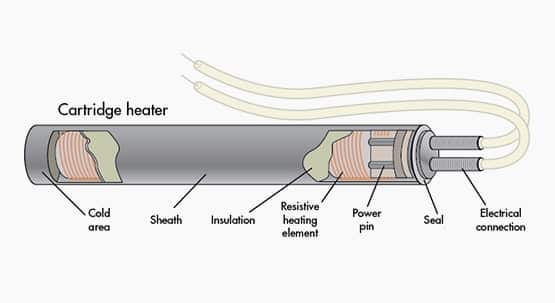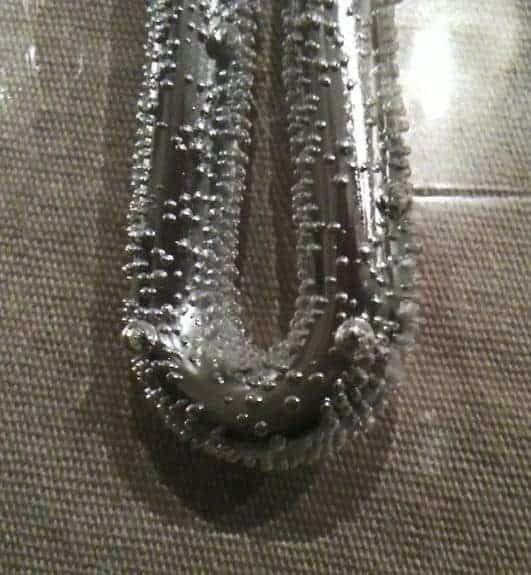Is it a water leak or a noisy water heater element?
I have a pretty good idea what is causing this noise…
From the Redwood Owners Forum
Hey Mike,
My water heater started to make a noise tonight. It sounded like a leak. After fiddling around a bit, I found that if I turned the switch off inside, the noise stopped. I turned it on again, and the noise started again. Anybody ever have this happen? Any ideas?
Here’s my quick answer
I’ve seen and heard a number of domestic electric water heaters do this, and it turned out to be a pinhole leak in the electric heating element. Very dangerous in an RV if you lose your shore power ground connection since it can cause a hot-skin/stray-voltage condition. There are a few simple ways to meter for this condition, which I’ll write about in a future RVelectricity column.
Let’s go deep…
Oh yes, I have an idea of what this could be, and it’s potentially dangerous if you have another failure at the same time. In this case, two small wrongs can make a very BIG wrong. Let’s explore the possibilities.
Your electric water heater uses a hermetically sealed element that consists of a nichrome heating wire inside of a copper or stainless steel tube. The nichrome wire heats up a ceramic insulating structure inside of the tube, and the metal tube heats up the water. This is all hermetically sealed to keep the electricity in the nichrome heating element separate from the water, because as we all should know, electricity and water don’t mix very well.
Here’s the inner workings of a heating element
Now, what happens if the electric heater element is damaged due to overheating from turning on the power to the water heater before filling it up with water, or simply from corrosion due to a worn-out sacrificial anode or hard water? In that case the hermetic seal of the metal tube can be breached, allowing the water in the tank to directly contact the nichrome heating element.
Two things now occur. First, by process of electrolysis you begin breaking down the H2O (water) into hydrogen and oxygen gas, which starts escaping from inside of the metal tube.
Here’s a video I made demonstrating what happens when you put a tiny hole in the heating element and allow water and electricity to mix. If you listen closely you can hear the bubbles escaping, and inside of a water heater tank under pressure it can actually sound like a water leak. Take a look at my video above.
So if you have a heating element with a breached hermetic seal, which likely makes noise when the power is on and the thermostat is calling for heat, then two interesting and potentially dangerous events begin to occur.
Danger, Will Robinson
First, you can begin filling up your hot water tank with hydrogen and oxygen (hydrox) gas. Now, if your RV water heater tank is filled with chlorinated city water there’s apparently a secondary reaction that converts this hydrox gas into hydrogen sulfide gas, which smells like rotten eggs but isn’t particularly dangerous (read explosive).
However, if you don’t have a chlorinated water source you are indeed filling up your hot water tank with hydrogen/oxygen gas in exactly the right proportions for an internal gas explosion.
Now if there’s an ignition source this probably won’t make a big enough boom to rupture the tank (believe me, I’ve tried), but if you’re pulling the anode out and there’s a spark it can make a pretty scary flash/boom which you’ll really want to avoid. Take a look at this short video demonstrating a relatively small hydrogen/oxygen explosion in a balloon below.
No, that’s not me in the video, but I may have to try this myself sometime. Yes, I’ll do it outside and not in my house. That’s called being a good husband.
Second, because the nichrome heating element is exposed to the water, you now have up to several amperes of potential fault current flowing into the chassis of your RV, depending on the exact position and size of the break. I’ve actually measured this with a rusted-out electric heater element, which leads me to the next scenario.
If your RV is properly grounded (via your shore power ground wire to the campground service panel’s G-N bonding point, not a ground rod on the bumper of your RV), then that ampere or two of fault current will harmlessly divert to the grounding system. However, if you have a failed ground due to a high resistance connection in your RV’s electrical panel, the shore power cord, or between the campground pedestal and the incoming power company’s service panel, then that fault current will end up on the chassis of your RV with no place to go. And if you, a family member or a pet touches the wet ground at the same time you’re touching the RV, then you can be shocked or electrocuted.
Note that it takes less than 30 mA (0.030 amperes) of current to put your heart into Ventricular Fibrillation (VFib), and a compromised water heater element can easily supply a hundred times that much fault current. Again, if your RV is properly grounded through its shore power connection (and not just a ground rod), then you should never feel a shock. That suggests if you ever feel a shock or even a tingle from your RV, then you’ve certainly lost the ground connection. If that occurs then you need to unplug from shore power immediately until its properly repaired.
So if you hear a noise inside of your water heater whenever the power is on and the thermostat is turned up, then it’s time to inspect the electric heater element for damage. And if you ever feel a shock from your RV, then you’ve certainly lost the ground connection from your RV chassis back to the service panel.
Testing 1.. 2… 3….
I’m currently working on a simple electrical test for this failure that any RV technician could perform in a few minutes without taking your water heater apart. Stay tuned for a future article detailing this procedure. As usual, this test procedure had to be invented and documented by me since I can’t find anything like it wherever I look. But it’s just one more troubleshooting tool I’m building that should help keep you all safe from shock in your RV.
Let’s play safe out there… Mike











So, would it be a good idea when not connected to shore power to run a ground wire to a metal stake in the ground to potentially disapate any wayward electricity? Thanks
Had this happen in the house a couple years ago. Just the noise, not the boom! The conductivity of "Water" is quite variable depending on the mineral content. Pure H2O does not conduct at all and sea water is the other extreme. All public water supplies have some mineral content and will conduct some current but how much is variable.